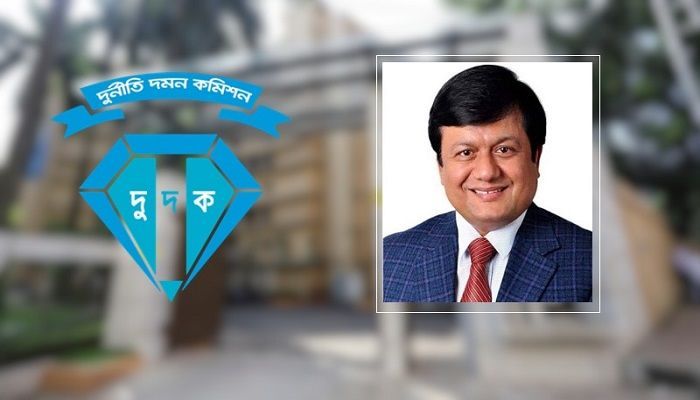Before the anti-quota protests began in July, other matters were keeping the public mind occupied. This included, but was not limited to, scandals facing the public sector. What followed was a strong skepticism in the inner workings of the government. As such, the shift of the protests to an anti-government stance was hardly surprising.
The “Sacrificed” Dignity of Government Officials
One of the common traditions of Bangladesh during Eid-ul-Azha is asking random passer-bys walking their animals home about its price. So it was not surprising when Bangladeshis spent a significant time discussing the most expensive sacrificial animals this year too, specifically on the internet. That led to some..interesting discoveries to say the least.
The son of an official of the National Board of Revenue (NBR) proudly boasted on social media about how he spent a staggering 12 lakh taka on a goat from Sadeeq Agro. This amount was no doubt unusually high for a government official to spend on a single goat. When confronted about this, Md Matiur Rahman denied that Mushfiqur Rahman Iffat was his son, which sparked further controversy and an interest in the family’s financial holdings.
A consequent investigation by the Anti-Corruption Commission (ACC) revealed that over the years, Dr Matiur had amassed a huge amount of wealth, not just in his name, but also those of his family members. They established a number of firms, such as a shoe factory and a travel bag manufacturing plant. He also acquired acres of land and houses in his hometown in Barishal. In Feni, he built an extravagant duplex house as a gift to his mother-in-law. In Pubail, he owns a park and around 300 bighas of land. As a civil servant with a monthly income of Tk. 78,000, these are no ordinary feats.
Not to mention, his son’s social media posts with luxury cars were already catching the public eye for some time.
It was later discovered that Dr Matiur’s source of income was “insider trading”.
He utilized his connections as President of NBR – Customs, Excise and VAT Appellate Tribunal, to purchase pre-public shares and enjoy capital gains. He privately bought shares in 20 companies, such as Ring Shine Textiles Ltd. and Fortune Shoes, before they were released to public investors. His family members were also associated in this, and together they accumulated 98,041,492 shares totalling Tk. 9.8 crore at the minimum. Following these findings, Dr Matiur was removed from his post as president at NBR, and also as Director as Sonali Bank PLC. There was a travel ban imposed on him and his family, accompanied by the seizure of their bank accounts.

Unfair Competition in Employment Processes
Shortly after this news died down, the recruitment exams for the Bangladesh Railway were held, under the Public Service Commission (PSC). But within days, it was discovered that the question papers for that exam had been leaked, which led to protests demanding nullification by indignant examinees.
The chairman of PSC then asked protestors for an opportunity to investigate. Before that, various directors of the PSC were suspended and arrested by the Criminal Investigation Department (CID).
As the investigation progressed, the police realized that they had their work cut out for them. A syndicate was exposed, who had been in the business of leaking government recruitment exam papers for the last 12 years. It comprised both former and current officials of the PSC, among other people, and was expected to be 50 people strong.
However, the most astonishing discovery made was that of a PSC dispatch rider, Khalilur Rahman. Even though he was jailed in 2012 under allegations of leaking the question papers for the 33rd BCS exam, he eventually got out on bail, with the charges being withdrawn in 2022. Since 2012, he has earned 50-60 crore taka just by selling exam questions to candidates.
These instances were hardly rare as a deputy director of PSC, Abu Zafar, was found garnering significant wealth under the banner of his coaching center, which is illegal for someone in his position to run. Abed Ali, a driver at PSC, was also deeply involved in this business. Interested examinees paid him 4-8 lakh taka each, and came in batches of 40-50. He rented houses in different areas for them to come and memorize answers before the exam. The math finally added up when Sajedul Islam, an assistant at PSC, admitted to selling the railway exam question papers to Abed and Khalilur for 75 lakh taka.
Bangladesh: A Breeding Ground for Corruption?
Following these scandals, government jobs have become synonymous with unethical practices for many. On the top of it, the main reason that these corrupt officials get away with fraud and embezzlement seems to be a lack of regulation in the public sector.
Many of the laws in place are outdated, or they are not enforced properly.
Otherwise, officials like Abu Zafar would be suspended long ago for coaching exam takers. Financial crime is therefore rampant – there are no consequences to face. Additionally, support from dishonest top officials may enable their subordinates to engage in fraudulent activities. The case of Khalilur Rahman, for instance, can be explained by this. How else could he continue employment at the PSC after being bailed? Finally, the lengthy processes of the judiciary system may also contribute to a corrupt culture. Employees know that even if they get arrested in connection to a scam, they can manage bail and somehow escape the verdict, because court proceedings simply take so long in Bangladesh.
Keeping all this in mind, it is evident that substantial reform is required at various levels of the government and law enforcement, as well as those of the justice system. Other sectors are adapting with the times and transforming for their betterment, so why can’t the public sector do the same? One step at a time, we can strive for a healthier Bangladesh.